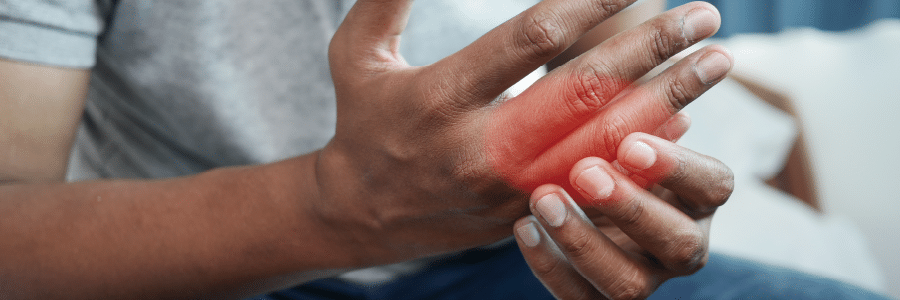What are Hemorrhoids?
July 10, 2022
Hemorrhoids, sometimes called piles, are swollen, inflamed veins around your anus or lower rectum. Though they can cause itching, pain, or bleeding, hemorrhoids are not dangerous.
About 1 in 20 Americans and almost half of people over 50 experience hemorrhoids.
What causes hemorrhoids?
Hemorrhoids can be caused by several things, including straining during bowel movements, sitting on the toilet for long periods, chronic constipation or diarrhea, a low-fiber diet, age-related weakening of anal or rectal tissues, pregnancy, or lifting heavy objects.
What are the symptoms?
Hemorrhoid symptoms depend on the type you have.
External hemorrhoids form on or around your anus. They may be visible but sometimes form lumps on the anal surface. They may cause itching, anal aches, or pain, especially when seated. The symptoms may worsen if you strain, rub, or clean around your anus.
Internal hemorrhoids form on the wall of your anal canal or rectum and are often not visible. You may realize that you have a hemorrhoid because you notice bleeding from your rectum. If internal hemorrhoid bulges out, it is prolapsed and can be very painful.
What can I do to treat hemorrhoids?
Most hemorrhoids go away with no treatment. There are several things you can do to help, including:
- Eating high-fiber foods, like fruits, vegetables, grains, and legumes;
- Taking a stool softener or fiber supplement;
- Drinking water or other non-alcoholic liquids;
- Not straining during bowel movements;
- Reducing the amount of time you sit on the toilet;
- Taking over-the-counter pain relievers or sitting in a warm water tub several times a day to help relieve pain.
Over-the-counter hemorrhoid creams or ointments may help with mild pain, swelling, and itching. You should consider visiting your doctor if your hemorrhoids don’t go away after a week of at-home treatment.
What can a doctor do?
You should visit your doctor if symptoms persist because hemorrhoids share symptoms with more serious conditions, such as digestive tract problems. For example, bleeding from your rectum may be a sign of bowel diseases like Crohn’s disease, ulcerative colitis, or colon or rectum cancer.
Your doctor can often diagnose hemorrhoids based on your medical history and a physical exam. Doctors can identify external hemorrhoids by checking the area around your anus. They can diagnose internal hemorrhoids by performing a digital rectal exam or other procedures to look inside your rectum or anus.
Get the care you need
Hemorrhoids are not particularly dangerous, but they can be uncomfortable. If you feel discomfort in your anus or rectum for more than a week, you should discuss the problem with your doctor. If you don’t have a doctor, Grady can help. If you need a primary care physician, call us at (404) 616-1000. We’ll arrange an appointment at a Primary Care Center near you. Doctors there can treat most conditions and provide access to Grady’s unparalleled medical specialty expertise.

Advertisement



